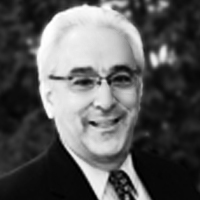Question
How can you tell if a person with hearing loss also has ADD?Answer
Since ''hearing loss'' is such a general term, I will assume for the scope of this question that the loss is in both ears and that it is symmetrical. Any asymmetry in hearing will add another variable to the problem: perceptual imbalance. For those with unilateral or asymmetric hearing loss, the brain needs to accommodate for different inputs into a system built to function in pairs, like wearing only one shoe. Further, I assume this hearing loss is not profound and there is some residual bilateral hearing ability, for which amplification can provide significant assistance. Lastly, I am assuming we are talking about a child.
Having said that, the key element in either area (hearing loss or ADD) is early and professional diagnosis and management. There is no single early warning sign that clearly and consistently indicates that a child with hearing loss does or doesn't also have ADD.
Attention deficit disorder (ADD) has, as one of its primary behaviors, difficulty focusing or paying attention for long periods of time. Alternately, children with ADD can be hypervigilant in their attention to one thing to the exclusion of all else. Listening problems abound. Fidgetiness is often witnessed too. ADD children are extremely active and ''time-outs'' just don't work!
Importantly, children with untreated hearing loss exhibit these same behaviors.
One demarcation line between the two diagnoses is that a child with hearing loss will probably have a delay in speech language development, whereas a child with ADD (without hearing loss) will have relatively normal speech-language developmental milestones. However, if the child's hearing loss is not present at birth, or if it is progressive (for instance, with some genetic syndromes), speech and language milestones can be relatively intact. To further confound the issue, children with temporary hearing losses due to middle ear infections can have delayed speech and language. Most of these children will go on to develop normal speech and language once the ear infections are resolved.
My experience is that with the majority of kids with both hearing loss and ADD, the hearing loss will be diagnosed first due to the child's communication delays. The diagnosis of hearing loss in children involves, at a minimum, a formal audiologic evaluation and diagnosis with medical clearance for amplification, fitting of appropriate hearing aids, and enrollment in a program of aural rehabilitation and educational management. The family and educational team then make observations about the child's behavioral changes over time, after the hearing aids are fitted and worn consistently. These observations are used to document ''aural orientation'' and development of new listening skills. These skills will initially manifest themselves by the child being able to demonstrate longer listening attention spans. The long-term goal is speech sound imitation and improved speech-language skills. Careful attention to the child's history, including any tendencies of other family members to exhibit language or learning disorders will be crucial.
Typical tests administered to diagnose ADD may not be appropriate if they do not have normative data on a sample of hearing-impaired children. The ADD diagnosis may need to be made well after the child is involved in an academic environment and speech-language therapy program, and only if previously noted behaviors do not improve.
So, the answer to the question is that there is tremendous variation. Every child is unique, and professional diagnosis and management by a qualified team of healthcare professionals are required with both diagnoses.
BIOGRAPHY
Robert M. DiSogra, MA, CCC-A, FAAA, is Director of Audiology Associates in Freehold, NJ. He has over 25 years experience in diagnostics and rehabilitation of hearing loss in infants, children and adults. He consults with numerous Boards of Education throughout Monmouth and Ocean counties in NJ. He is also on the faculty at the School of Audiology at the Pennsylvania College of Optometry. His latest publication ''Adverse Drug Reactions and Audiology Practice'' appears as a special issue of Audiology Today published by the American Academy of Audiology.

